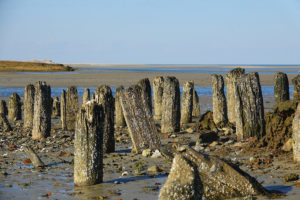 Long before English settlers arrived in what is now Yarmouth and Dennis in the 1630s, many generations of Native Americans lived here. Several resident tribes fell under the collective Wampanoag nation. The Pawkunnawkuts occupied both sides of the southern section of Bass River. The Hokanums lived in the northeast section of the town, part of which still bears their name, and the Cummaquids lived in the western section. The area which bordered Nantucket Sound to the south was known as the “South Seas” and the whole of the area that is now Yarmouth was referred to as “Mattacheese.” In the native tongue, Mattacheese meant “old lands by the borders of water.” On January 7, 1639, the court record refers to the land grant to the first settlers John Crow, Thomas Howes, and Anthony Thacher as “the lands of Mattacheeset, now called Yarmouth.” This is considered the first usage of the name. In June of 1776, the Continental Congress sent forth a request for advice as to whether “if Congress should … declare their independence, the people will sustain them in the act.” According to the Historical Society of Old Yarmouth, the response was, “The inhabitants of the town of Yarmouth do declare a state of INDEPENDENCE OF THE KING OF GREAT BRITAIN, agreeable to a late resolve of the General Court, if in case the wisdom of Congress should see proper to do it.” One historian claims that no other community in the state responded to the inquiry of the Congress with anything like the decisive and bold declaration of the people of Yarmouth.
Long before English settlers arrived in what is now Yarmouth and Dennis in the 1630s, many generations of Native Americans lived here. Several resident tribes fell under the collective Wampanoag nation. The Pawkunnawkuts occupied both sides of the southern section of Bass River. The Hokanums lived in the northeast section of the town, part of which still bears their name, and the Cummaquids lived in the western section. The area which bordered Nantucket Sound to the south was known as the “South Seas” and the whole of the area that is now Yarmouth was referred to as “Mattacheese.” In the native tongue, Mattacheese meant “old lands by the borders of water.” On January 7, 1639, the court record refers to the land grant to the first settlers John Crow, Thomas Howes, and Anthony Thacher as “the lands of Mattacheeset, now called Yarmouth.” This is considered the first usage of the name. In June of 1776, the Continental Congress sent forth a request for advice as to whether “if Congress should … declare their independence, the people will sustain them in the act.” According to the Historical Society of Old Yarmouth, the response was, “The inhabitants of the town of Yarmouth do declare a state of INDEPENDENCE OF THE KING OF GREAT BRITAIN, agreeable to a late resolve of the General Court, if in case the wisdom of Congress should see proper to do it.” One historian claims that no other community in the state responded to the inquiry of the Congress with anything like the decisive and bold declaration of the people of Yarmouth. 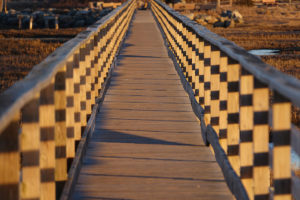 Dennis and Yarmouth were once, in fact, a single municipal entity called Yarmouth for 154 years until 1793, when the people of what was then known as the “East Precinct” seceded, formed an independent town, and called themselves Dennis. Today, the town is made up of three major villages – South Yarmouth, West Yarmouth, and Yarmouth Port. Bass River is a scenic destination in South Yarmouth – but it was once the proposed location for the Cape Cod Canal. The waterway nearly cuts the Cape in two from Cape Cod Bay to Nantucket Sound, and old sailors in the late 1800s knew this. But Captain Bixby of the Army Corps of Engineers put the kabosh on the plan, claiming it was not worth spending federal money on building a canal there. Developers began to refashion Yarmouth into a summer resort near the end of the 19th century. Hotels and summer cottage communities proliferated in the first half of the 20th century, particularly along what is now Route 28. With the emergence of the car culture in the years just after World War II, these were joined first by many motels (mostly along Route 28 in West Yarmouth) and later by the more congested, suburban pattern of residential housing construction that characterizes Yarmouth today. The headquarters of the International Fund for Animal Welfare (IFAW), a global animal welfare and conservation charity founded in 1969, is located in Yarmouth Port. In 1970, the national Christmas Tree Shops retail chain was founded at a location on Route 6A in Yarmouth Port.
Dennis and Yarmouth were once, in fact, a single municipal entity called Yarmouth for 154 years until 1793, when the people of what was then known as the “East Precinct” seceded, formed an independent town, and called themselves Dennis. Today, the town is made up of three major villages – South Yarmouth, West Yarmouth, and Yarmouth Port. Bass River is a scenic destination in South Yarmouth – but it was once the proposed location for the Cape Cod Canal. The waterway nearly cuts the Cape in two from Cape Cod Bay to Nantucket Sound, and old sailors in the late 1800s knew this. But Captain Bixby of the Army Corps of Engineers put the kabosh on the plan, claiming it was not worth spending federal money on building a canal there. Developers began to refashion Yarmouth into a summer resort near the end of the 19th century. Hotels and summer cottage communities proliferated in the first half of the 20th century, particularly along what is now Route 28. With the emergence of the car culture in the years just after World War II, these were joined first by many motels (mostly along Route 28 in West Yarmouth) and later by the more congested, suburban pattern of residential housing construction that characterizes Yarmouth today. The headquarters of the International Fund for Animal Welfare (IFAW), a global animal welfare and conservation charity founded in 1969, is located in Yarmouth Port. In 1970, the national Christmas Tree Shops retail chain was founded at a location on Route 6A in Yarmouth Port.
Things You Might Not Know About Yarmouth
September 4, 2024
From The CapeCod.com NewsCenter
 DOJ Files Complaint Against CVS For Facilitating Unlawful Sale Of Prescription Opioids
DOJ Files Complaint Against CVS For Facilitating Unlawful Sale Of Prescription Opioids Barnstable Parking Fines To Increase On January First
Barnstable Parking Fines To Increase On January First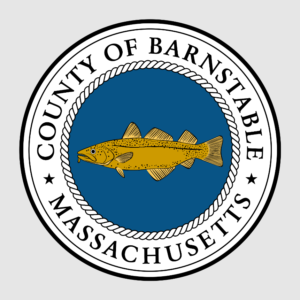 Barnstable Highlights Support for Foreign Workers
Barnstable Highlights Support for Foreign Workers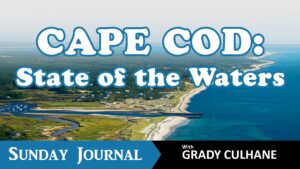 Sunday Journal – Cape Cod’s Failing Water Quality Grades Continue, Hope on Town Sewer
Sunday Journal – Cape Cod’s Failing Water Quality Grades Continue, Hope on Town Sewer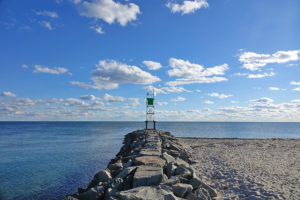 Nantucket Barrier Beach Designated National Natural Landmark
Nantucket Barrier Beach Designated National Natural Landmark Alleged Leader Of MV Bank Robbery Gets Decade Behind Bars
Alleged Leader Of MV Bank Robbery Gets Decade Behind Bars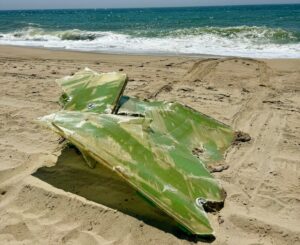 Vineyard Wind Turbine Installations Resume
Vineyard Wind Turbine Installations Resume Barnstable Adult Community Center Closed Due to Water Damage
Barnstable Adult Community Center Closed Due to Water Damage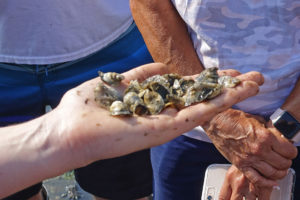 Regional Food Producers Receive Grants To Renovate And Modernize
Regional Food Producers Receive Grants To Renovate And Modernize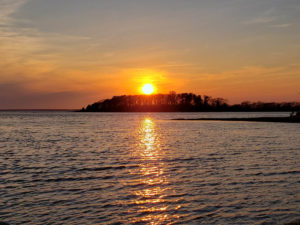 Feasibility Study Offered For Future Of Bourne Library
Feasibility Study Offered For Future Of Bourne Library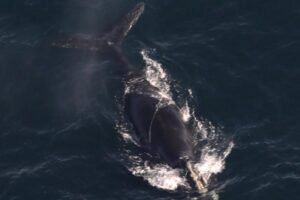 PICTURES: Experts Tracking Entangled Right Whales South of Nantucket
PICTURES: Experts Tracking Entangled Right Whales South of Nantucket Deadline Approaching For Health Care Plans Beginning On January First
Deadline Approaching For Health Care Plans Beginning On January First Provincetown Welcomes Three New Firefighters
Provincetown Welcomes Three New Firefighters











